#Government
Nissan Continued Using Uncertified Inspectors After Misconduct Exposed
Nissan Motor Co. has recalled 1.2 million new vehicles it sold in Japan over the last three years after discovering vehicle checks were not being performed by certified technicians. After a lengthy internal investigation, the company stated it continued to conduct unaccredited final checks as recently as last week.
News of the discovery came on Wednesday, more than two weeks after Chief Executive Hiroto Saikawa publicly stated only certified technicians had conducted checks since September 20th. Despite attempts to remedy the widespread issue at its Japanese factories, there were at least two technicians lacking the necessary training and credentials at its Shonan Plant located in Tsutsumicho, near Hiratsuka City.
Obligatory NAFTA Update: Mexico and Canada Reject U.S. Proposals as Talks Wrap Up
As the fifth round of NAFTA talks come to a close, Mexico and Canada continue to reject the United States’ demands regarding automobiles, diary, dispute panels, government procurement and the sunset clause. Among the more recent automotive proposals kicking up dirt is the U.S.’s wish to include steel in NAFTA’s tracing list and increase the mandatory local content of every car built in North America. The attempt has annoyed foreign officials and left the industry fretting about increased production costs and complexity.
The increasingly tense nature of the talks has left many wondering if President Trump will make good on his earlier threat to leave NAFTA. However, plenty of analysts are of the mind that a deal will eventually be reached between the three countries.
Brexit Seems to Have Really Screwed Up Britain's Car Market
While some of Europe saw modest auto sale gains through the first nine months of 2017, the region has mirrored North America’s decline in deliveries since the end of the summer. The United States saw eight consecutive months of declining sales this year, with a positive bump in September and better than expected volume in Canada.
Europe, meanwhile, saw the inverse. Passenger car registrations fell 2 percent year-over-year to roughly 1.43 million deliveries in September, despite August seeing a 5.6-percent improvement. Overall, 2017 has the makings of a unsatisfactory sales year for both regions. But Europe seemed to be doing alright before the U.K. suddenly stopped buying cars.
British registrations took a massive nosedive after Brexit. By September, it represented a monthly decline of 9.3 percent, compared to Germany’s 3.3 percent slide. Even though the rest of the continent saw a gain in sales, having Europe’s two largest markets lagging guaranteed the net loss.
Can Uber Survive Being Placed Under the Microscope?
Uber Technologies is about to be probed to a degree that would make even the most compliant alien abductee blush. The company is now looking at a minimum of five criminal investigations from the U.S. Justice Department regarding claims of bribes, illicit software usage, unfair marketing practices, corporate espionage, questionable pricing strategies, and theft of a competitor’s intellectual property.
The ride-hailing firm is also involved in dozens of lawsuits from from customers and employees — and one very public suit with autonomous research rival Waymo. But Uber’s skirting of the law was what made it so profitable to begin with. Its take-no-prisoners attitude may have been the thing that ultimately ousted founder and CEO Travis Kalanick and severely tarnished its corporate image, but it’s also an aspect that ensure its success. Still, nobody likes learning how the sausage is made and every look behind Uber’s curtain revealed another fresh horror the press couldn’t resist mentioning — including yours truly.
NHTSA Appoints New Deputy Administrator, Still No Department Head
Last week, we discussed how the National Highway Traffic Safety Administration had some staffing gaps that needed shoring up. While it remains shy one administrative head, the White House saw fit to officially appoint a new deputy administrator — effectively replacing acting deputy administrator Jack Danielson’s interim leadership.
Danielson has served as the NHTSA’s executive director since 2015, but spent the last eight months filling in for an absent department figurehead. He’s being relieved by Heidi King, an economist with the federal government and experience in the private-sector.
The NHTSA: Broken Down, Short on Staff, Slow on Change
The United States is still waiting on a glut of senior appointments within agencies that affect the automotive industry. While the Environmental Protection Agency eventually got Scott Pruitt, many high-ranking positions remain vacant at the EPA and other U.S. regulatory groups. The National Highway Traffic Safety Administration is still missing an administrator, chief counselor, director for government affairs, chief financial officer, and one enforcement chief.
With so many holes in its staff, former NHTSA officials and consumer advocacy groups are worried the agency has been rendered ineffective — essentially stalled on important decisions and issues that need the right kind of signature. Eight months is a long time to wait for an appointment and the NHTSA was only just given a deputy administrator, after former executive director Jack Danielson’s promotion.
U.S. Attempts to Convince South Korea to 'Buy American'
Officials from the United States and South Korea held a special session in Washington on Wednesday as part of U.S. Trade Representative Robert Lighthizer’s request to consider amending the two countries’ trade agreement. The joint talks serve to reassess the countries’ five-year pact, with the Trump administration aiming to diminish America’s growing trade deficit with South Korea.
One of the largest issues concerns the automotive industry. Korean rules stipulate a cap on the number of vehicles U.S. automakers can bring into the country each year that adhere to the country of origin’s safety standards. Presently, that quota sits at 25,000 vehicles per manufacturer. However, no U.S. company has ever made full use of the quota. General Motors, which is the most popular U.S. brand in South Korea, only sold 13,150 domestically built units in 2016.
U.S. Is Intentionally Sabotaging NAFTA Trade Talks, Officials Claim
President Donald Trump entered into office threatening to abandon the North American Free Trade Agreement if the United States was not given a better deal immediately. But, after negotiations began, it looked as if his ultimatum would be unnecessary.
Now, U.S. officials involved in NAFTA negotiations are being accused of making proposals on issues Mexico and Canada have said they would never agree to. Are these bold negotiation tactics being used to place the U.S. in a better position for future issues, or are trade arbitrators intentionally trying to sabotage talks so Trump can make good on his promise to leave the agreement?
Trump Flips Script on Who's Paying to Fix Our Crumbling Infrastructure
Last week, I defended the president’s honor and lamented that I probably wouldn’t have a follow-up opportunity for some time. As it turns out, that claim is in no danger of becoming a falsehood. On Tuesday, President Trump told lawmakers he was ditching a key aspect of his planned $1 trillion infrastructure package — namely, who is going to pay for it.
Spoiler alert: its going to be taxpayers.
The White House previously envisioned a strategy where private investors would be lured into rebuilding roadways, bridges, and rail networks with promises of federal backing and a less-daunting approvals process. But now it’s saying partnerships between the private sector and federal government might not work.
California's Current Strategy to Ban Internal Combustion Engines
California has been toying with the idea of banning internal combustion motors for a couple of years now. While the concept is gaining popularity across the globe, the ban itself is a bit misleading. Regions in favor of the idea aren’t really pursuing an outright ban on engines that burn gasoline; they’re trying to mandate electrification and reduce emissions via non-traditional powertrains.
In April of 2015, California Governor Jerry Brown announced, “If the federal government can’t get it right, we in California are going to take care of business.” With the Trump administration making strides to roll back regulatory efforts, it appears the state of California is ready to pop in some Bachman–Turner Overdrive and begin taking care of said business.
Consumers Union Wants Heavy-duty Truck Buyers to Know Their Vehicle's Fuel Economy
Say you’re on the Ram website, perusing a new 2500 heavy-duty pickup. On the specifications page, you scroll down to the fuel efficiency table to see how many Andrew Jacksons you’ll be forking over at the pumps. The verdict? The Ram 2500 has a 32-gallon fuel tank. Thank you for visiting.
Unlike passenger cars and light duty trucks, heavy-duty trucks with a gross vehicle weight above 8,500 pounds aren’t required to flash fuel economy data on a window sticker. Searching the fueleconomy.gov database turns up nothing in the way of information. Now, Consumers Union wants Congress to change that. The consumer advocacy group is calling on the federal government to place fuel economy information on window stickers for the benefit of large truck buyers.
As it awaits a response, the group’s Consumer Reports publication went ahead and tested some heavy-duty pickups.
NHTSA's Updated Autonomous Safety Guidance Doesn't Actually Offer Any
On Tuesday, Transportation Secretary Elaine Chao outlined the Trump administration’s “Vision for Safety 2.0” at the University of Michigan’s Transportation Research Institute in Ann Arbor. The document is a collection of non-binding requests to manufacturers and a promise that they can go hog-wild with their autonomous vehicle testing, at least as far as the feds are concerned.
In a deluge of policy updates, the National Highway Traffic Safety Administration tweaked its vision for safety, claiming it was responding to the recent increase in the number of road accidents.
While Obama-era guidelines weren’t particularly robust, the Trump administration has essentially built a technical-sounding framework aimed at destroying regulatory red tape. Ironically, the government seems to have gone out of its way to ensure it stays out of the way. In some respects, it has to. The speed of development is beginning to happen at a rate where any outside bureaucracy would have difficulty keeping pace. Chao said the guidance would remain flexible, ready to adapt to the changes as they come. But it is also without teeth, promoting development and the future promise for safety at the expense of any meaningful oversight.
Did the Department of Transportation and NHTSA sell themselves out to industry or do they actually think giving automakers carte blanche on autonomous testing was the best thing for public safety?
House Unanimously Approves Proposal to Deploy Self-driving Cars, and Not Everyone's Happy
On Wednesday, the U.S. House unanimously approved a sweeping proposal to expedite the deployment of self-driving cars and prohibit states from blocking autonomous vehicle testing.
“With this legislation, innovation can flourish without the heavy hand of government,” Ohio Republican Bob Latta said on the House floor leading up to Wednesday’s vote. Latta is chairman of the House Energy and Commerce subcommittee that developed the legislation with support from tech companies and the automotive industry.
One thing missing from the House measure is large trucks, which the Senate hopes to address in its own bipartisan legislation. Congress announced a September 13th hearing to examine the role of autonomous commercial vehicles and how they may fit into the Senate’s pending self-driving legislation. Meanwhile, the House’s bill moves up the board to be put to a vote within the Senate at a later date.
Money-hungry States Lining Up to Tax Self-driving Cars (Just Like EVs)
There’s few things people living in the U.S. can agree on, but one of those things is the state of American road infrastructure. For the most part, it sucks. Eisenhower’s long gone, but his network of interstate highways, plus the spiderweb of two-lane roadways cross-crossing every corner of America haven’t grown better with age.
Meanwhile, the U.S. federal gas tax remains unchanged since its last hike in 1993. Still locked at 18.4 cents per gallon, the infrastructure funding shortfall created by the static federal tax is spurring states to pass their own gas tax increases. Michigan, California, and — controversially — New Jersey are among the most recent examples.
Still, boosting prices at the pumps only works if drivers still visit those pumps. What of the coming self-driving car wave, the vanguard of which are high-tech electric vehicles piloted by mere humans? Enter the taxman and his slim book of ideas.
NAFTA Renegotiations Begin, Automakers Worried Over Rules of Origin
The first round of the North American Free Trade Agreement renegotiations begins on Wednesday. U.S. President Donald Trump, Mexican President Enrique Peña Nieto, and Canadian Prime Minister Justin Trudeau have planned to meet in Washington, D.C. on August 16th and stay through the 20th to discuss trade policy. Afterward, NAFTA debates will be led by U.S. Trade Representative Robert Lighthizer, Canadian Foreign Minister Chrystia Freeland, and Mexican Economy Minister Ildefonso Guajardo.
While this all began as a Trump campaign promise to renegotiate a better deal for the United States (or abandon the trade agreement entirely), it has evolved over the last six months into an opportunity to modernize NAFTA policies. There’s no firm deadline for the three countries to reach an agreement, but Mexico is pushing for the process to wrap up before its presidential campaign begins in earnest in February.








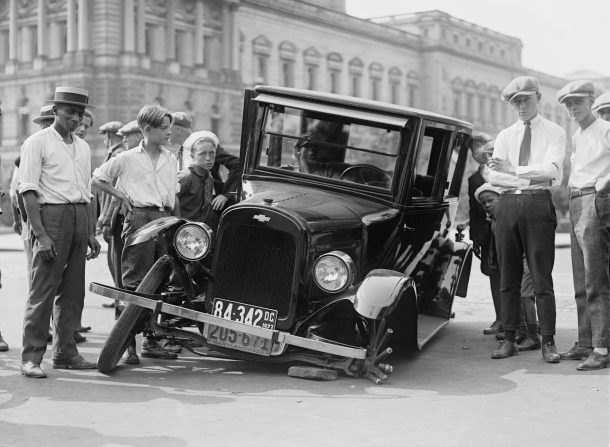



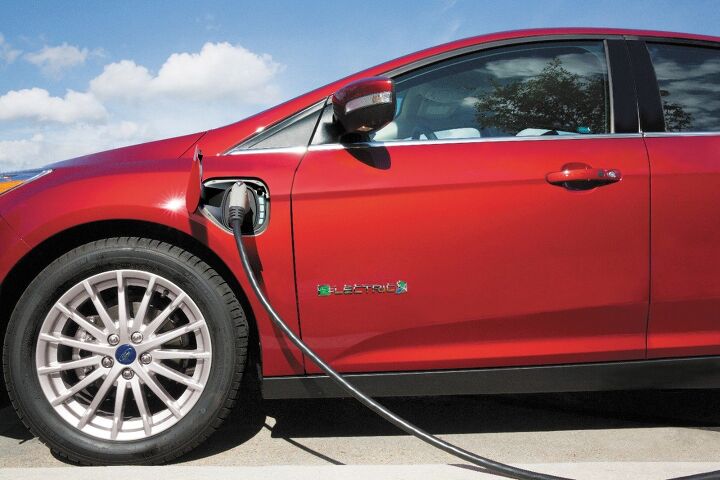
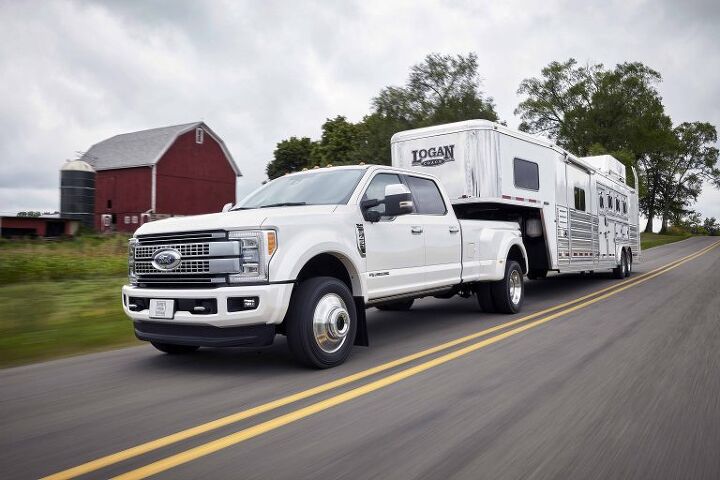
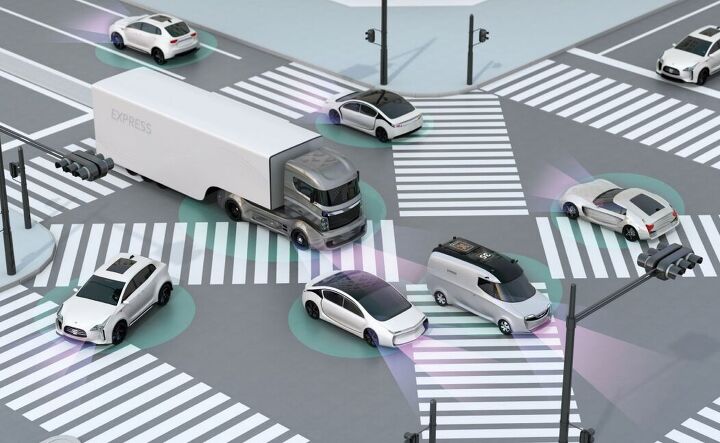
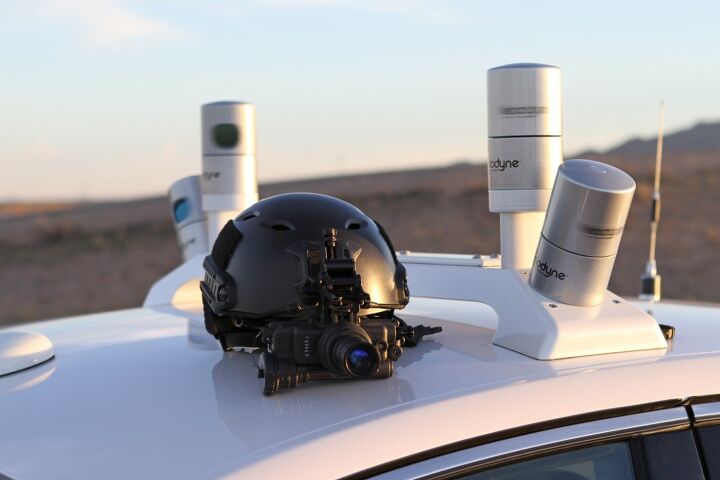













Recent Comments